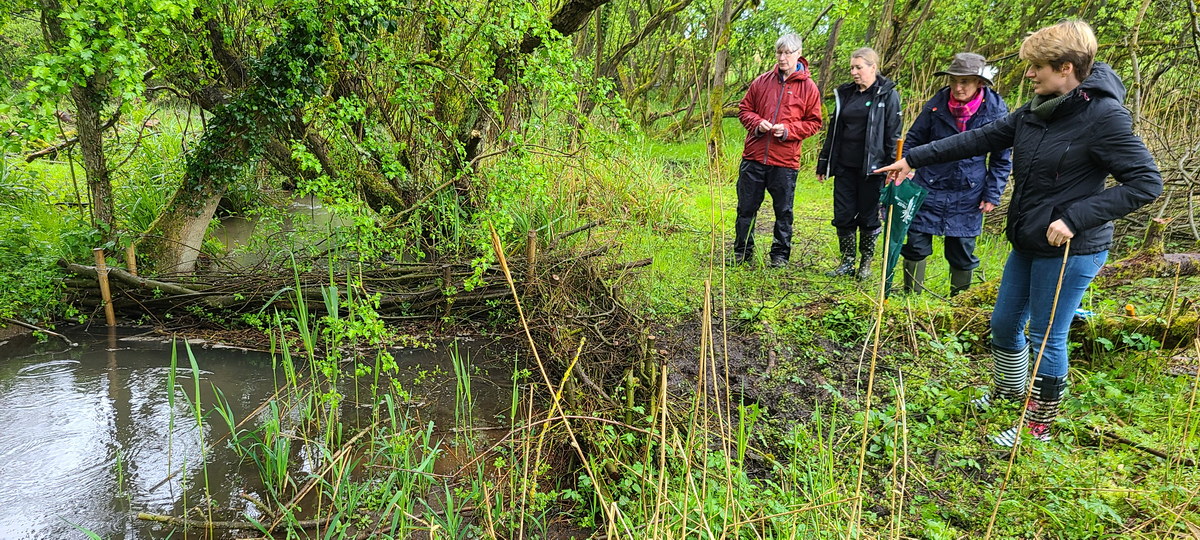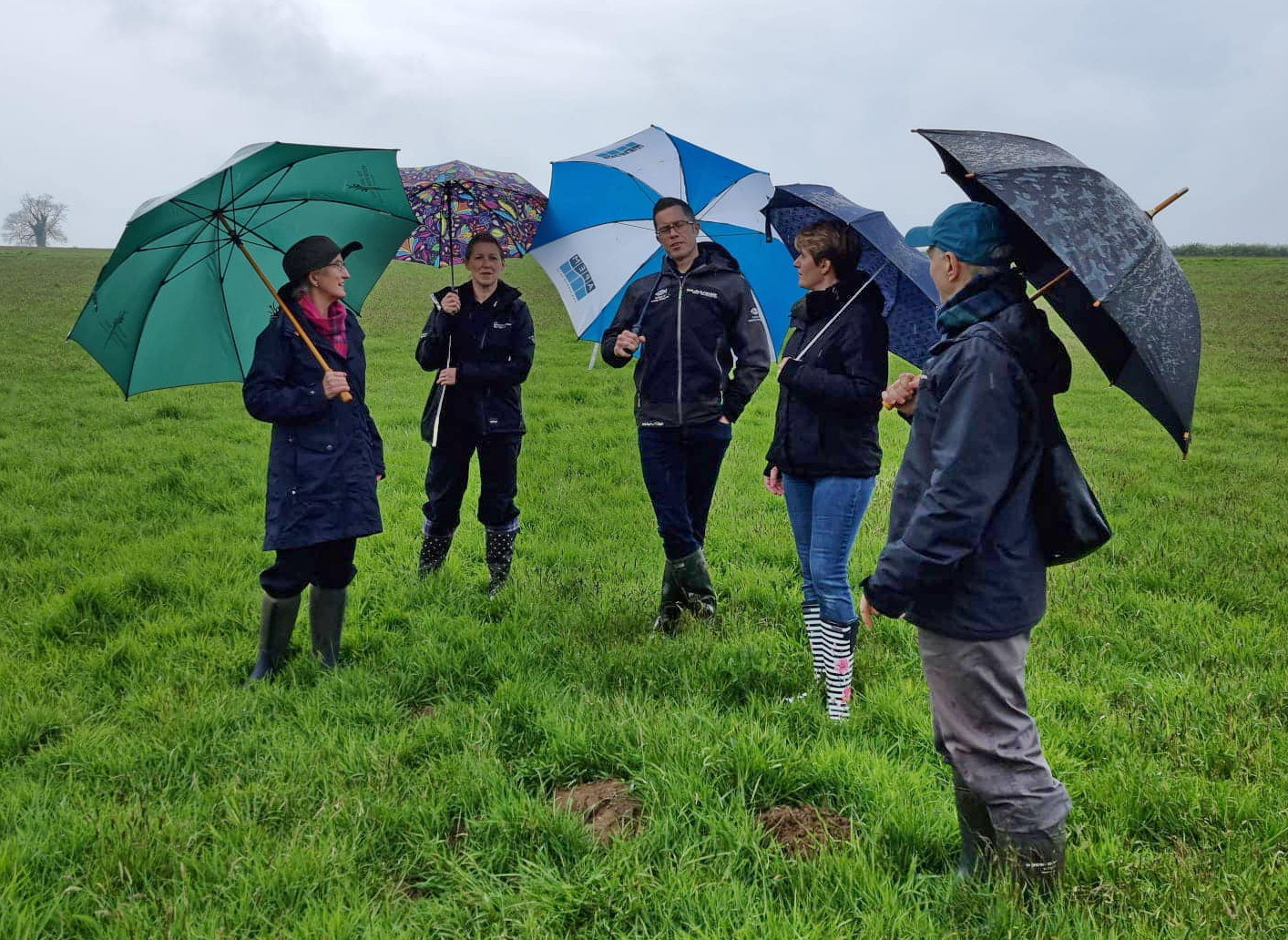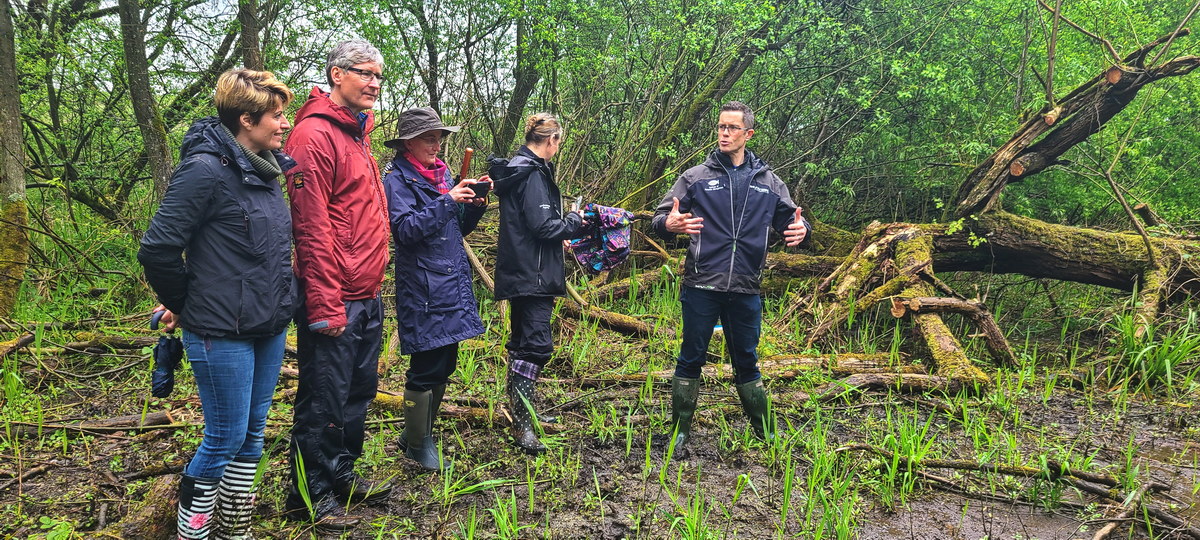Emma Hardy MP visits Drewton Beck
3 May 2024
Amongst other MPs, Emma Hardy (Shadow Minister - Flooding, Oceans and Coastal Communities) recently met our good colleagues, Slow The Flow (STF), at a presentation to ministers in Parliament. STF followed up with an invitation to see their work in Calderdale and pointed out that she might also be interested in speaking to WWSTF and seeing our recent work, as we are so much closer to her West Hull constituency. Emma accepted our invitation to see the recent NFM works at Drewton Beck and visited on Friday 3 May 2024.

Issues and opportunities
Emma arrived with her researcher, Sean Clough, and we invited Amanda Foster of the Environment Agency and Paul Coulson of East Yorkshire Rivers Trust (EYRT), both of whom are key partners for WWSTF. And, yes, it was tipping it down.

Emma was interested to understand the NFM interventions and how they could be combined, in enough numbers, to provide flood mitigation by 'slowing the flow'. She particularly wanted to understand the barriers to NFM measures becoming a more widely-adopted approach to flood management, such as the potential impact on agricultural production, acceptance and adoption by the Flood Risk Agencies, and the levels of risk associated with these measures.
We were able to explain that the locations we have found thus far for NFM would have no effect on agricultural production, as they are marginal and wet riparian areas anyway. Of course, we also need to think big and, as Amanda Foster stated, "It is not about 'not farming' - it is about farming differently".
We also noted that, as a very experienced NFM manager in Stroud District Council, Chris Uttley takes the view that the closer you can make the NFM interventions to being natural, the less risk they pose - because nature will work with them, not against them. In his extensive experience, that risk is simply negligible - and certainly well within the insurable risk allowances of local authorities or Water and Sewerage Companies.

Beavers
And, of course, the conversation turned to Beavers! There is no doubt that they would do a much better job than us, as regards slowing the flow and flood risk management. But there are some big issues to consider. Foremost is that, unless we want them everywhere, they can only be introduced into strictly-controlled enclosures, at considerable cost. The second major point is that beaver dams restrict or prevent fish movement. In a naturally abundant landscape, that might not be an issue (except for migratory species). But in our degraded watercourses, where fish are already struggling to survive, coping with the enclosure of beaver dams would be a step too far for many species. More research needed, but in many areas, there is no beaver silver bullet!
More tea?
We finished the afternoon with lovely tea and cake at the nearby William's Den and further discussions with the principal landowner at Drewton, Christian Carver, to better understand the landowner's position. Emma left with much to think about - but gave us a few things to ponder, too! Hopefully, we have made a small contribution to raising awareness of Natural Flood Management on the political agenda.